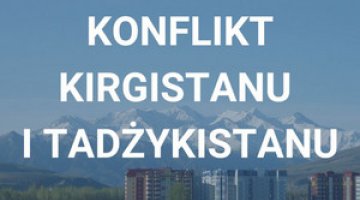Kyrgyzstan: Japarov and the presidential republic victorious
On 10 January early presidential elections combined with a referendum on the state’s political system (presidential vs. parliamentary) were held in Kyrgyzstan. According to information provided by the Central Election Commission, Sadyr Japarov won the election, receiving almost 80% of the votes. A similar percentage of voters supported the presidential republic. The turnout was only 39.8%. Japarov announced that a snap parliamentary election will be held in May 2021.
Commentary
- The election brings an end to the transitional period prompted by the protests of October 2020, caused by the allegedly fraudulent parliamentary elections. As a result, the incumbent President Sooronbay Jeenbekov resigned and the previous parliament temporarily handed over power to an opposition politician, Japarov, who was released from prison. He conducted an effective, extensive election campaign (both in the regions and online), using a compelling combination of nationalist and populist slogans and emphasising the need for strong power. Earlier, while holding the office of interim president, he appointed his close allies to key positions in the country, which gave him the opportunity to use administrative resources. He also had more financial resources, which were of unclear provenance, than all the other candidates for the election campaign combined.
- Japarov (born in 1968) is an experienced and charismatic politician from northern Kyrgyzstan. He began his career as an employee of the Ministry of Internal Affairs and a businessman. He has been a parliamentary deputy since 2005 and is an associate of President Kurmanbek Bakiyev (who was overthrown in 2010), including serving as the head of the anti-corruption agency. He was also one of the leaders of populist and nationalist party Ata Zhurt. He has been accused of active participation in the bloody Kyrgyz-Uzbek conflict (2010). He strongly advocated the nationalisation of the country's key enterprises (including the Kumtor gold mine controlled financially by a Canadian company). In 2013 he was sentenced to 11 years in prison, including for organising riots in the Kumtor affair and taking the provincial governor hostage (he served his sentence after returning to the country in 2017).
- Japarov won the election by a landslide, but with a low turnout, which shows massive-scale disillusionment with those in power and the lack of significant reforms in the country. An elected president, with the aura of a politician who has never been discredited and has been a political prisoner for a long time, still has no significant competition. A strengthening of his authority is to be expected in the short term. This is already drawing criticism from the West. For example, the Venice Commission has expressed a negative opinion on his path to power and on the political reforms.
- In the long run, social dissatisfaction can be expected to escalate due to economic and social issues that are difficult to solve (a deepening crisis catalysed by the COVID-19 pandemic, problems with debts to China, etc.) The crisis is also stimulated by Kyrgyzstan's large regional disparity, which will have an impact on the political alternative getting solidified (Japarov is already being opposed by some of the elite from the influential southern part of the country and the pro-western groups).



